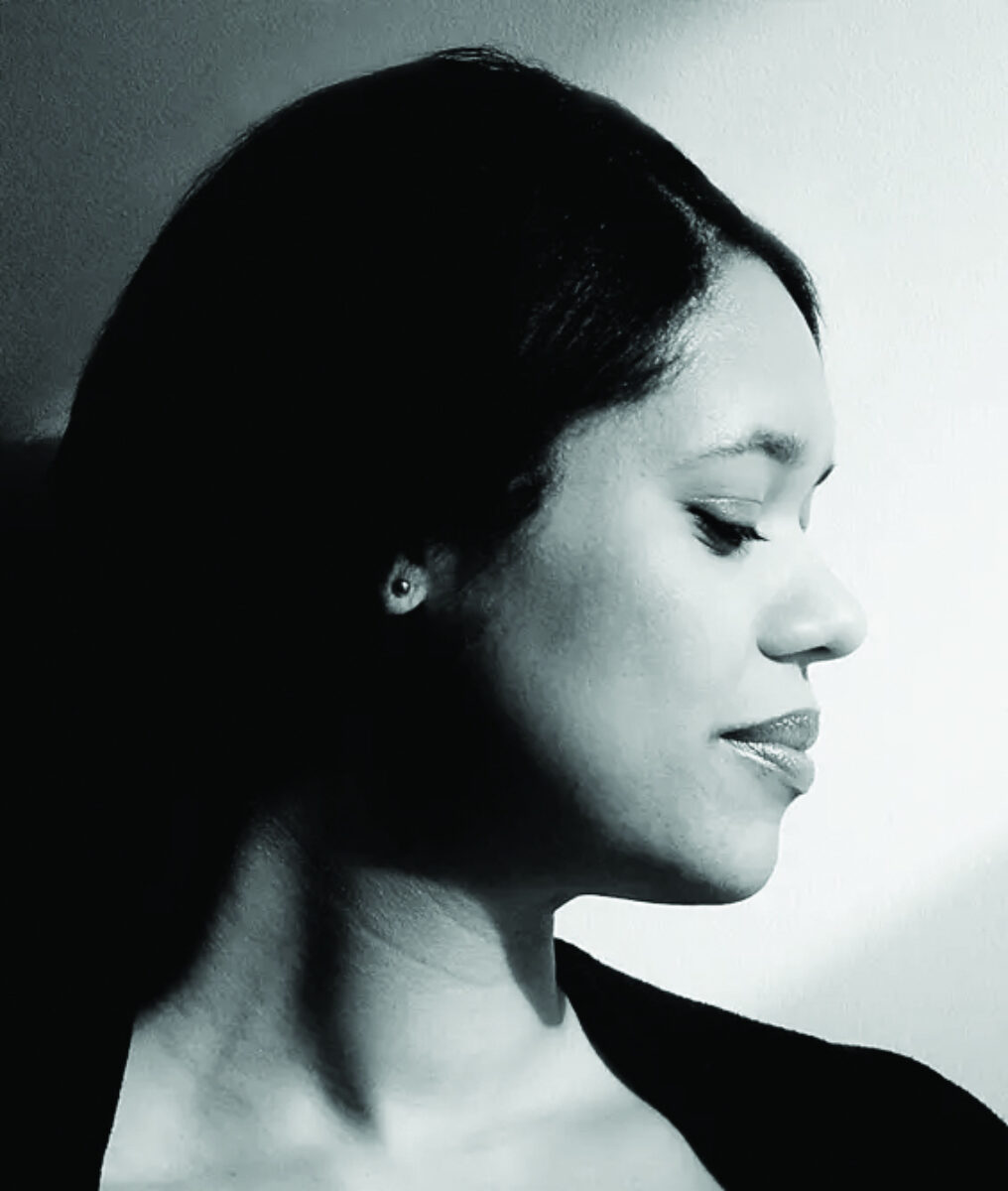Hannah Kendall

About
Hannah Kendall was born in 1984 in London and lives in New York City.
London, in particular in the Wembley area in northwest London where Kendall grew up, figures deeply in the composer’s perspective on music, art, and communication. Her parents were Guyanese immigrants to England. She has described her mother, a primary school teacher, as her strongest influence in convincing her of her own capabilities, regardless of her chosen life path. Her early musical training included piano and voice; she studied vocal performance as well as music composition as an undergraduate at the University of Exeter. She went on to the Royal College of Music for her master’s degree in composition. Her teachers included Joe Duddell at Exeter and Ken Hesketh at the RCM. She also holds a master’s degree in arts management from the Royal Welsh College of Music and has worked extensively in that field. As a teacher, she worked with young students at the Junior Royal Academy of Music. She earned her doctorate in composition from Columbia University.
Wembley is a culturally vibrant area known for its demographically diverse population embracing South Asian, East Asian, Caribbean, White European, Black African, and other heritages. Kendall’s work and collaborations reflect and explore this blending and dynamic interaction of cultures via “creolization,” which is manifest in music whose sonic sources and stylistic content reflect the wonderful possibilities of her own real and human world. Creolization in contemporary music, a concept fleshed out by one of Kendall’s mentors, George Lewis, aims for a balancing of both individual and collective voices to revitalize, enrich, and expand the possibilities of Eurocentric classical music.
Kendall’s immersion in broad narratives of the African diaspora are a powerful presence in her work. She has sought out similar creolized approaches in literature, visual art, and other cultural media, which provide the direct impulses for individual pieces. Her “Tuxedo” series of works takes its cues from imagery and texts in the Jean-Michel Basquiat print assemblage by that name, with its multilevel, coded iconography. Her 2018 orchestral work Verdala references the name of a ship carrying the British West Indian Regiment to the theater of battle in World War I. Her Spark Catchers was triggered by a poem by the poet Lemn Sissay about the women and conditions behind the 1888 Bow Matchwoman’s Strike—a dynamically physical subject steeped in matters of social inequity, the labor movement, and feminism, among many other things. The importance of visual and literary imagery as a partner to music is at the center of Kendall’s 2017 chamber opera The Knife of Dawn. Its single role is the Guyanese poet and activist Martin Carter (1927-1997) during his hunger strike while incarcerated by the British government during protests advocating for his country’s independence.
The Boston Symphony Orchestra first performed Hannah Kendall’s music in 2021, videorecording her Disillusioned Dreamer for the orchestra’s BSO Now streaming programs during the pandemic-altered 2020-2021 season. The Tanglewood Music Center Orchestra performed it in July 2021. The BSO and Andris Nelsons performed her orchestral work The Spark Catchers in concerts surveying the five Beethoven piano concertos. In the U.S., her work has also been performed by such ensembles as the New York Philharmonic, San Francisco Symphony, Seattle Symphony Orchestra, and Los Angeles Philharmonic. She has worked with European ensembles including Klagforum Wien and Ensemble Modern, as well as having works performed at the Lucerne, Donaueschingen, and Berlin music festivals. Kendall’s work is performed frequently by major British ensembles including the London Symphony Orchestra, London Philharmonic, London Sinfonietta, Philharmonia Orchestra, Hallé Orchestra, BBC Symphony Orchestra, and Chineke! Orchestra, which premiered The Spark Catchers at the BBC Proms in 2017.
Robert Kirzinger, BSO Director of Program Publications
